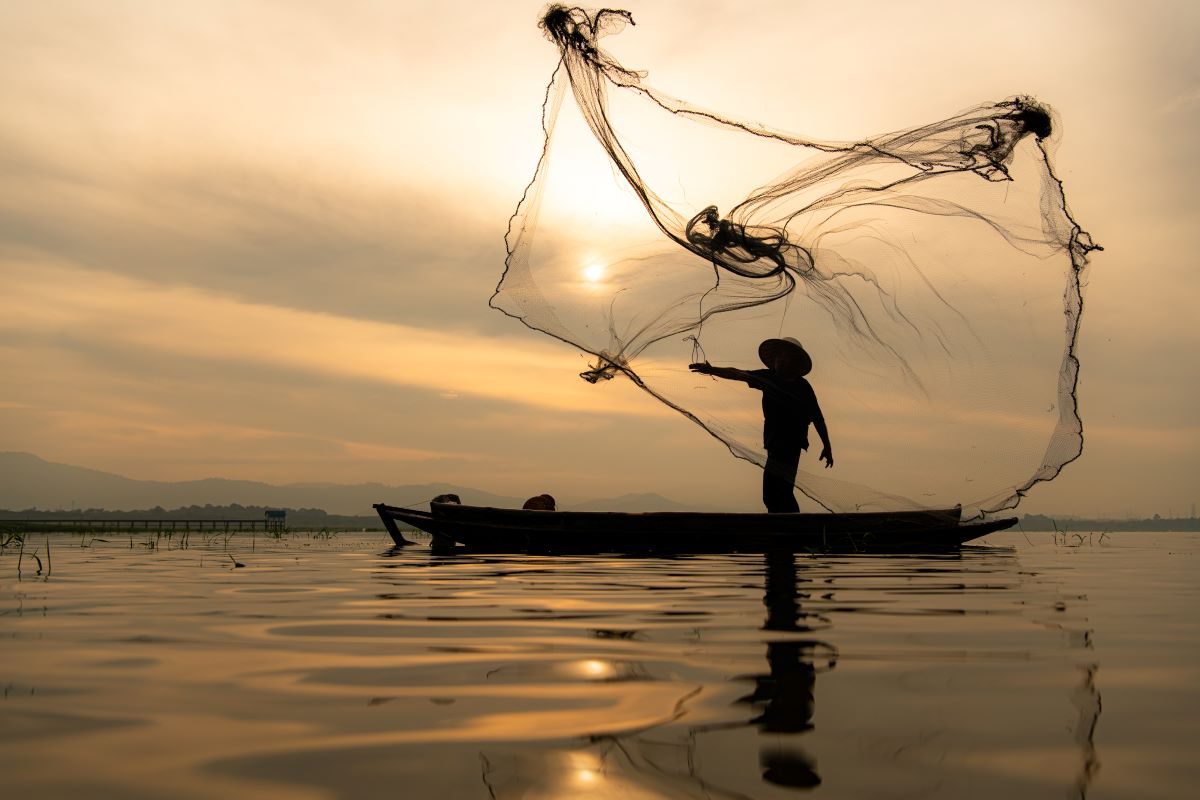UNESCO's Intergovernmental Oceanographic Commission and the United Nations aim to reverse the cycle of decline affecting our seas by making the ocean healthy and resilient, safe, clean, productive, accessible, predictable, inspiring, and engaging by 2030. To this end, they have called for a collective effort to address ten specific challenges, publishing ten White Papers as part of the Decade of Ocean Science for Sustainable Development. Each White Paper addresses a specific topic, starting with marine pollution and the restoration of marine ecosystems. Renewable Matter has embraced this challenge with an in-depth series of ten articles, each focused on a single paper.
This article addresses Challenge 3: sustainably nourish the global population. The working group, consisting of 17 internationally renowned experts, was led by Vera Agostini, Deputy Director of the Fisheries and Aquaculture Division at the Food and Agriculture Organization (FAO), and Erik Olsen, Head of the Research Group for Sustainable Development at the Norwegian Institute of Marine Research (IMR).
“The Vision 2030 is a strategic initiative designed to identify the scientific knowledge and innovation needed to support effective solutions in ocean-related areas,” explains Vera Agostini. “Specifically, Challenge 3 focuses on optimising the ocean's role in sustainably nourishing the global population amid numerous contemporary challenges, including environmental degradation, social conflicts, and climate change. This effort also emphasises the importance of considering the needs of diverse stakeholders and rights holders, because when addressing these issues, we have to consider the whole planet.” In their White Paper, the experts focused on two key issues: how to increase the sustainable production of nutritious aquatic foods and how to ensure more equitable access to these resources.
Food insecurity
Global food insecurity remains significantly higher than pre-COVID-19 pandemic levels, also due to the impacts of the climate crisis and geopolitical tensions. According to The State of Food Security and Nutrition in the World 2024 report, jointly produced by FAO, IFAD, UNICEF, WFP, and WHO, approximately 2.33 billion people worldwide struggle to access food regularly, while 864 million are experiencing severe food insecurity. Expanding access to aquatic foods for people, especially vulnerable communities, is crucial to achieving several targets of the United Nations SDG2, to end hunger, ensure food security, and improve nutrition.
Aquatic foods include all edible organisms living in water, such as fish, crustaceans, algae, and plants, from both marine and freshwater environments. Globally, they provide about 17% of protein, with this figure rising to 50% in several African and Asian countries. “People everywhere depend on aquatic foods, so we must support their production and ensure equitable access,” Agostini continues. “However, it's equally important to do this without exceeding planetary boundaries, although I have to say that aquatic foods generally have a better environmental footprint, thus lower, compared to their terrestrial counterparts.”
According to the FAO The State of World Fisheries and Aquaculture 2024 report, global fishery and aquaculture production amounted to 223.2 million tonnes. Of this, 83% were aquatic animals and 17% were algae. Additionally, in the same year, the value of aquaculture reached 312.8 billion dollars.
“Like any initiative, promoting aquatic foods requires investment. Without adequate funding and support, it's challenging to position these products as key solutions,” Agostini explains “However, it's crucial that this funding does not create perverse incentives or add to overcapacity. Funders and investors have a significant role to play, but their involvement must be carefully managed to balance different needs effectively. For example, when talking about subsidies, the WTO is addressing this issue in fisheries through a new agreement on fisheries subsidies that will hopefully come into force soon. FAO and WTO collaborate closely on this issue, and we have been providing technical support to the WTO on fisheries matters for many years”
Everything is linked
One of the authors' aims was to identify five scientific priorities crucial for achieving the goals of the third challenge of the Ocean Decade. These priorities are key to guiding decisions on scientific investments and shaping research programmes effectively. Firstly, it is important to understand the challenges and opportunities of new frontiers and to develop tools for effectively accessing and disseminating information. Furthermore, it is crucial to understand the current and future states of social and ecological systems and to support the implementation and evaluation of existing interventions. Finally, it is essential to support the design, monitoring, and evaluation of new interventions.
To make marine food systems sustainable and ensure equitable access to these resources, it is crucial to address scientific and knowledge gaps by involving local communities in co-creation of science and promoting interdisciplinary collaboration, particularly in small-scale fisheries and aquaculture. Furthermore, new public-private partnerships must be established and strengthened to foster innovation, enhance data collection, build capacity, and increase funding.
As Agostini points out, “aquatic food systems cannot exist in isolation. They are intricately connected not only to other marine challenges but also to what is happening on land. This interwoven complexity necessitates a transdisciplinary, holistic scientific approach to effectively address this issue.” In other words, the third challenge is closely related to all the others outlined in the White Papers. The resilience and availability of marine species depend on factors such as pollution, rising sea temperatures, and our capacity to protect and restore endangered aquatic ecosystems. Additionally, the development of a sustainable and equitable marine economy, as well as enhancing community resilience to ocean hazards, directly affects the ability to ensure more equitable access to marine products.
This article is also available in Italian / Questo articolo è disponibile anche in italiano
Image: Envato



